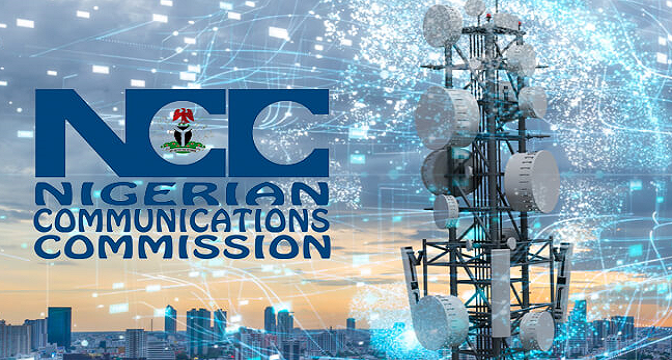NCC Reaffirms Commitment to Protect Digital Infrastructure, Targets $1 Trillion Economy

By Isola Moses | ConsumerConnect
The Nigerian Communications Commission (NCC) has reaffirmed its commitment to safeguarding the nation’s Critical National Information Infrastructure (CNII), describing it as essential to achieving the Federal Government’s $1 trillion economy target.
Dr. Aminu Maida, the Executive Vice-Chairman and Chief Executive Officer of the NCC, made this known at the 2025 Finance and Business Online Publishers (FiBOP) Conference held in Lagos. The conference, themed “Protection of Critical National Information Infrastructure (CNII) and Building Industry Resilience,” highlighted the importance of strengthening Nigeria’s digital and telecommunications infrastructure to ensure economic sustainability.
Represented by Mr. Babatunde Apeji, Dr. Maida outlined a five-pronged strategy to enhance telecoms resilience and support President Bola Ahmed Tinubu’s administration’s economic vision.
He emphasised that protecting the CNII alone was not enough, stressing the need for network resilience—a system capable of withstanding disruptions and recovering swiftly in the digital ecosystem.
“When we talk about a $1 trillion economy, we often mention oil, agriculture, or manufacturing. But the real backbone of all these sectors today is our digital infrastructure,” Maida said.
“Protecting CNII is not just about keeping the Internet on; it is about securing the nation’s economic future. Together, we can safeguard Nigeria’s digital foundation and power the trillion-dollar economy we all envision.”
Telecoms Sector: A Pillar of Nigeria’s GDP
According to Dr. Maida, the telecommunications industry currently contributes over 15 percent to Nigeria’s Gross Domestic Product (GDP), underscoring its pivotal role in national development.
However, he warned that the sector remains under constant threat, revealing that the NCC recorded over 26,000 incidents of fibre cuts, vandalism, and theft across major telecom operators between January and August 2025.
“These attacks, coupled with cyber intrusions and ransomware threats, pose serious risks to the economy and must be addressed decisively,” he stated.
NCC’s Strategy for Protecting CNII
Dr. Maida noted that the NCC has adopted several measures to protect CNII, including:
- Strengthening regulation and enforcement mechanisms.
- Increasing public awareness on digital infrastructure protection.
- Collaborating with security and government agencies.
- Facilitating stakeholder mediation and deploying security forces when necessary to deter vandalism and sabotage.
He also reminded stakeholders that, under President Tinubu’s directive and the Cybersecurity Act, telecom infrastructure has been formally designated as a national security asset.
Focus on Network Resilience and Sustainability
Beyond protection, the NCC is prioritising resilience to ensure telecom networks can withstand and recover from crises, natural disasters, and other disruptions.
To achieve this, Dr. Maida disclosed that the Commission is implementing several strategic frameworks, including:
- Telecoms Disaster Recovery and Business Continuity Guidelines to ensure preparedness and consumer protection.
- Sectoral Computer Security Incident Response Team (CSIRT) for coordinated cybersecurity response.
- A new Cybersecurity Framework designed to anticipate and mitigate telecom-related threats.
- Major Network Outage Portal to enable operators to report major service disruptions for prompt regulatory action.
- Enhanced Infrastructure Standards, requiring stronger tower designs, redundant power systems, and solar backups in rural areas.
Multi-Sector Collaboration
Dr. Maida emphasised that achieving true network resilience requires collaboration beyond the telecoms industry.
He revealed that the NCC is partnering with the Central Bank of Nigeria (CBN) to secure mobile banking and cashless transactions, and working with the Nigerian Electricity Regulatory Commission (NERC) and the Rural Electrification Agency (REA) to improve power reliability for telecom sites.
Additionally, the NCC is engaging state governments and local communities to protect fibre and tower sites under the CNII Presidential Order.
“Government must prioritise CNII in national infrastructure planning. Security agencies must treat telecom facilities with the same urgency as oil and power assets. Operators must invest in redundancy and cross-sector cooperation. And communities must view telecom masts and cables as lifelines, not targets,” Maida urged.
He also confirmed that, in collaboration with the Nigeria Governors’ Forum (NGF) and with World Bank support, the NCC is advancing initiatives to improve broadband investment and foster shared responsibility in protecting Nigeria’s digital assets.

